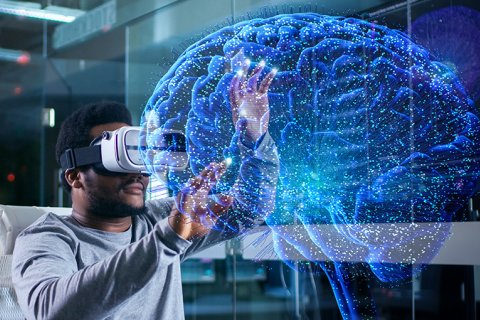Special Interest Groups
Our special interest groups (SIGs) are interdisciplinary groups of three or more researchers from at least two faculties, that work on subthemes relevant to the focus area Human-centered Artificial Intelligence.

Natural Language and AI
This SIG broadly concerns topics at the intersection of natural language and AI. The SIG covers all aspects of computational linguistics (CL) and natural language processing (NLP), their applications to technology, as well as connections to cognitive modelling and psychology. Of particular interest are methods that combine traditional rule-based or model driven techniques with modern statistical approaches to CL and NLP.

AI, Ethics and Law
This SIG investigates AI, ethics and law in two dimensions: legal and ethical problems related to the adoption of AI technologies; and the application of AI to ethical and legal problems. The former dimension covers topics like privacy, responsibility & liability, non-discrimination, and transparency of algorithmic decision making. The latter divides into (i) AI support for humans in their legal or ethical decision making, and (ii) making autonomous computer systems behave in ethically or legally responsible ways.

AI in Cultural Inquiry and Art
The current ‘Algorithmic Condition’ shapes practices of knowledge and artistic production within cultural inquiry and in creative and cultural professions. As Artificial Intelligence spreads throughout art, culture, and academia, this SIG deepens our understanding of both the specificity of AI and of algorithm-driven creativity in academic and artistic production.

Social and Cognitive AI (SCAI)
The Social and Cognitive AI (SCAI) Special Interest Group focuses on understanding how humans interact with AI, which requires detailed models of the social and cognitive mechanisms that mediate that interaction. Research in these areas is present at various faculties of Utrecht University.

Applied Human-Centered AI
Artificial intelligence, as a fast-growing scientific discipline, has already changed our daily lives in fundamental ways. This SIG unites advances in various AI technologies using a human-in-the-loop approach for practical societal challenges. We closely connect with the AI Labs at Utrecht University and together aim to explore the interdisciplinary research cooperation among internal researchers and external partners from social, human-behavioral and geographical aspects.
Joined Special Interest Groups

Active Learning
With the emergence of online publishing, the number of scientific papers on any topic is skyrocketing. Simultaneously, the public press and social media also produce data by the second. In this tsunami of new knowledge, imagine updating a medical guideline, making evidence-based policy, or scouting for new technologies: there’s not enough time to read everything. More and more researchers and organisations rely upon Systematic Reviews: attempts to synthesise state-of-the-art in a particular field. The rapidly evolving field of Artificial Intelligence (AI) has allowed the development of AI-aided pipelines that assist in finding relevant texts for search tasks. A well-established approach to increase efficiency is screening prioritisation via active learning: a constant interaction between a human and a machine.
The SIG is a collaboration between the focus areas Applied Data Science and Human-centered Artificial Intelligence.

AI, government and behavior
Increasingly, government organisations use algorithms and data with the aim to support policy and decision-making. In this SIG, scholars from computer science, behavioral science and public administration join forces to contribute to the trustworthy use of AI-powered technologies in public organisations, such as the police, ministerial departments and municipalities.
The SIG is a collaboration between the focus areas Governing the Digital Society and Human-centered Artificial Intelligence.


